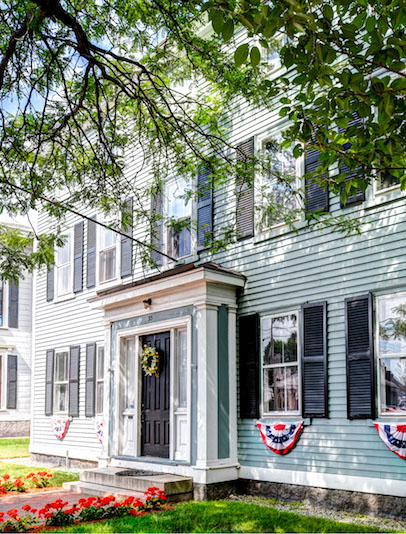
General Gideon Foster House, Peabody Historical Society Headquarters
35 Washington Street, Peabody
This National Historic Landmark was the home of Revolutionary War hero General Gideon Foster and his family. General Foster courageously led militiamen from South Danvers (now Peabody) in the Battle of Lexington and Concord, the siege of Boston and the Battle of Bunker Hill. This stately, Federal style home was built in 1810 and purchased by Foster in 1815. After several successive owners, the house was sold to the Peabody Historical Society in 1916 and became its permanent headquarters.
The first floor of the Foster House features a Federal style dining room and a Victorian parlor that interpret the occupancies of the Foster and Merrill families of Peabody. The second floor houses the Society’s extensive costume and textile collections, including clothing, hats, shoes, jewelry, table linens, quilts, samplers and other needlework. The third floor houses our military artifacts that were used by local citizens who served in major conflicts from the Revolutionary War to the war in Iraq.
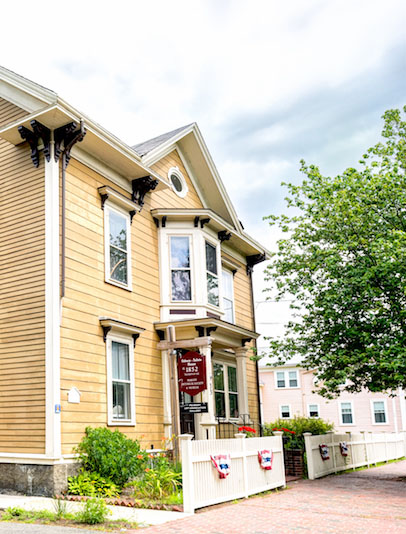
Osborne-Salata House
33 Washington Street, Peabody
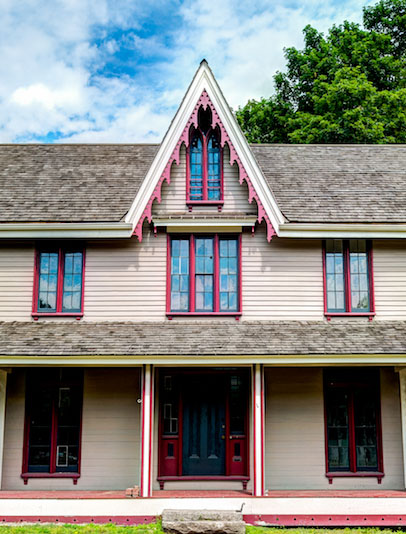
Sutton-Pierson House
31 Washington Street, Peabody
In March of 2009, the Sutton-Pierson House was donated to the Peabody Historical Society by the developer of the Aborn Street lot on which it was located. The house was moved to a vacant lot adjacent to the Osborne-Salata House on Washington Street.
New Location of the Ruth Hill Library and Archives
The Society is restoring the home and will utilize it as the location of the soon-to-be-expanded Ruth Hill Library and Archives. More details will be announced Fall 2019.
The Society’s extensive archives, gathered over the course of the past one hundred years, document all aspects of Peabody’s history. The research library is a leading repository for historic printed material and images of the City of Peabody, and it is an essential resource for scholars, genealogists and property owners.
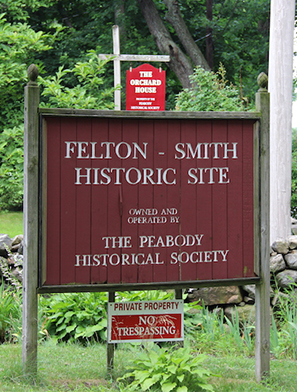
Felton-Smith Historic Site
Felton Street, Peabody
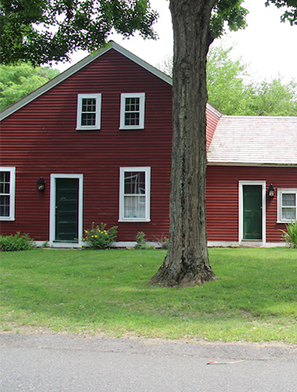
Nathaniel Felton Senior & Junior Houses
47 & 43 Felton Street, Peabody
In 1902, the Felton homes were purchased by Joseph Smith, a wealthy shoe manufacturer from Lynn. Smith also purchased several abutting properties and established Brooksby Farm. He planted orchards, cultivated pasture land, and built a large barn and a caretaker’s cottage, called the Orchard House. The family also built large additions onto the Senior and Junior houses and used the property as a summer residence.
In 1976, Eleanor Smith, the widow of Joseph Smith’s grandson, gave the Peabody Historical Society the Junior House, Smith Barn, Orchard House and 8.5 acres of land. Seven years later, Janet Smith, the grand daughter of Joseph Smith, bequeathed the Senior House and an additional 8 acres of land to the Society. Around this time, the City of Peabody purchased 200 acres from the trustees of the Smith estate, and now maintains Brooksby Farm as a working farm and recreational area. Both the Nathaniel Felton Senior and Junior Houses are listed on the National Register of Historic Places.
While the Nathaniel Felton Senior and Junior Houses have been altered over the past three centuries, the properties retain many components of their original construction. Tours feature period rooms and a discussion of Felton family history, first period architecture, and daily life in the Colonial period.
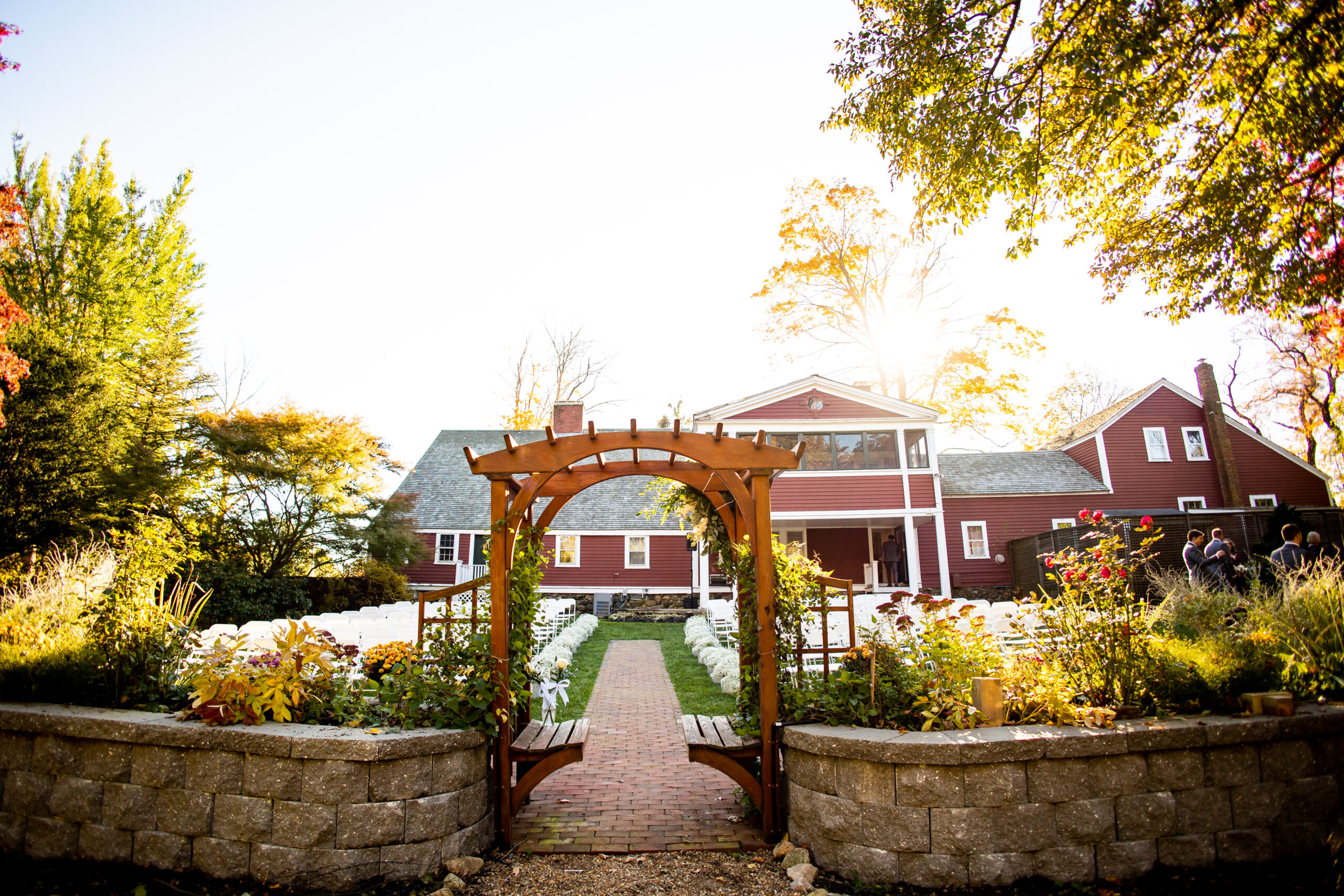
Woodland Gardens
43 Felton Street, Peabody
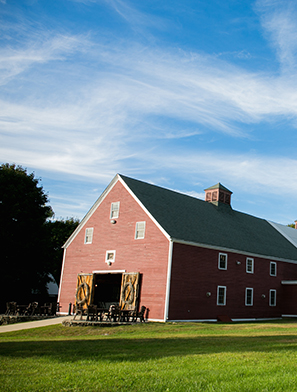
Smith Barn
38 Felton Street, Peabody
The Smith Barn was built in 1903 by Joseph Smith to store apples harvested from the orchards, grain for the animals and farming implements. The Barn is now the site of numerous community events, including the Society’s annual craft fair in November. The Barn can also be rented for weddings, corporate events, and private parties.
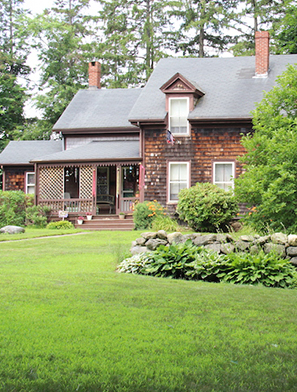
Orchard House
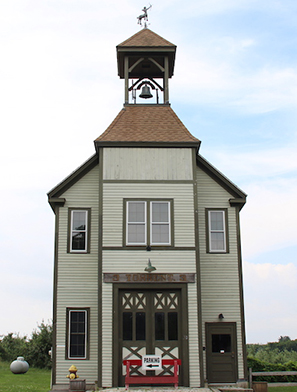
Peabody Historical Fire Museum
38 Rear Felton Street, Peabody

The Peabody Historical Society and Museum are proud members of the Peabody Area Chamber of Commerce.
Website photos courtesy of Solare Wedding Photography and GraVoc Associates
Smith Barn
General Gideon Foster House
35 Washington Street, Peabody, MA 01960
